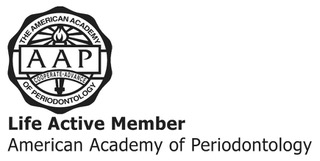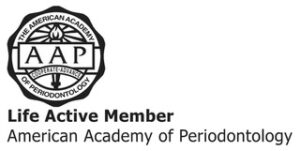Gum Disease Risk Factors
The primary cause of gum (periodontal) disease is bacterial plaque — a sticky, colorless film that constantly attaches to tooth surfaces. The interplay between bacteria and a person’s immune response to it results in the destruction of the gum and boney attachments to the teeth. That being said, there are other things that can make the problem worse.
Heart Disease / Stroke
Heart Disease
Research suggest that people with gum (periodontal) disease are nearly 2X as likely to suffer from coronary artery disease as those who are periodontally healthy.
It is believed that bacteria from the mouth can affect the heart when they enter the blood stream, attach to fatty plaques in the coronary (heart) arteries and eventually contribute to clot formation. Researchers believe that the artertial plaques associated with gum disease increases systematic inflammation and may contribute to swelling of the arteries.
Periodontal disease can also make existing heart conditions worse. Individuals at risk for infective endocarditis may require antibiotics prior to dental procedures. Your cardiologist can help determine if your heart condition requires use of antibiotics prior to dental procedures.
Stroke
Research indicates a relationship between periodontal (gum) disease and stroke. In one study, people diagnosed with a shortage of oxygen (ischemia) to the brain were more likely to have an oral infection when compared to those that were orally healthy. The control of periodontal disease is an important factor in controlling and/or preventing stroke and heart disease.
Diabetes
If you are diabetic, you are at greater risk to have periodontal disease (gum disease) than people without diabetes. In fact, periodontal disease is often considered a major complication of diabetes. Individuals with uncontrolled diabetes are especially at risk for periodontal loss of support.
Not only does diabetes put an individual at greater risk to develop periodontal disease, but periodontal disease can negatively influence a diabetic’s ability to control their blood sugar.
Diabetics have an increased risk of diabetic complications when they have high blood sugar. Treatment of periodontal disease has been shown to result in better diabetic control which in turn decreases the number of ER visits and the associated risks of blindness, heart issues, and circulatory problems.
Drugs
There are many drugs which can affect the mouth in a detrimental way. For example, oral contraceptives, anti-seizure drugs, and some categories of heart drugs can result in gums that are swollen and overgrown. Other medications (over 500!) may cause dry mouth (xerostomia) which can increase the risk for tooth decay.
Stress
Stress can cause changes in how responsive our immune system reacts to challenges. Stress has been associated with the onset of cancers, high blood pressure (hypertension), and other health concerns. Stress is also a risk factor for periodontal disease because of the changes in a person’s immune response.
Pregnancy Concerns
Pregnancy causes the gums to have an increased sensitivity to bacteria resulting in swelling and bleeding. Your grandmother might have told you that she lost her teeth during pregnancy. There are also now real concerns about having gum (periodontal) disease and risks to the newborn.
We’ve known for a long time that smoking and alcohol and drug use contribute to women having babies born early at a low birth weight. Now, evidence suggests a periodontal disease is a risk factor to premature delivery. Pregnant women who have gum (periodontal) disease may be 7X more likely to have a baby that is born too early or too small.
Gum disease seems to trigger increased levels of fluids that induce labor. Studies suggest that women whose periodontal disease is not treated and it worsens during pregnancy have a higher risk of having a premature baby.
All pregnant women, as well as women of childbearing age, are encouraged to contact our office so that we help you have the healthiest baby possible! We also want to prevent unnecessary tooth loss in a pregnant woman by treating the “pregnancy gingivitis” and establish a healthy mouth. This is Win-Win for both the Moms and their babies.
Respiratory Disease
Researchers know that bacteria that grow in the oral cavity, especially in people with gum (periodontal) disease, can be inhaled into the lungs and cause respiratory infections like pneumonia as well as worsen allergies and breathing problems like asthma or emphysema.
Decreases of oral bacterial concentrations with appropriate professional tooth cleanings, mouth rinses, good home care, resulting in good periodontal health can reduce complications to chronic breathing disorders.

















